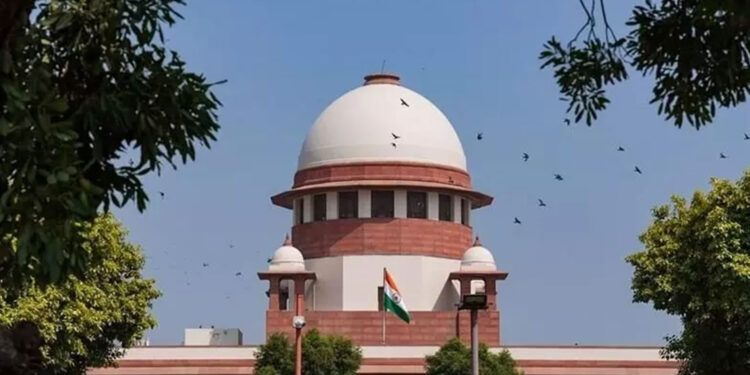In a recent ruling, the Supreme Court of India has affirmed that imposing a condition restricting a politician from participating in political activities as a requirement for granting bail would infringe upon fundamental rights. The case in question, titled Siba Shankar Das vs State of Odisha and another, involved the Orissa High Court imposing such a condition, which was subsequently challenged.
The bench overseeing the case, comprised of Justices BR Gavai and Sandeep Mehta, deliberated on the legality and constitutionality of the bail condition. The Supreme Court ultimately overturned the condition, emphasizing the importance of upholding fundamental rights, including the right to engage in political activities.
The case stemmed from a situation where the petitioner, Siba Shankar Das, had been granted bail by the Orissa High Court in a criminal case. However, one of the conditions of his bail was that he refrain from participating in any political activities. This condition raised concerns about its compatibility with the petitioner’s fundamental rights, particularly the right to freedom of speech and expression, as enshrined in the Indian Constitution.
The Supreme Court’s ruling underscored that the right to engage in political activities is a fundamental aspect of democracy and is protected under the Constitution. The court emphasized that any restriction on this right must be reasonable and in accordance with the principles of natural justice. In this case, the bench found that the condition imposed by the Orissa High Court was overly restrictive and went against the principles of fundamental rights.
The court’s decision in this case has broader implications beyond the specific circumstances of the petitioner. It reaffirms the importance of safeguarding fundamental rights, particularly in the context of political activities. The ruling serves as a reminder to judicial authorities to exercise caution when imposing conditions on bail that may infringe upon these rights.
Furthermore, the ruling highlights the role of the judiciary in upholding democratic principles and ensuring that individuals are not unduly restricted in exercising their rights. By overturning the bail condition, the Supreme Court has reaffirmed its commitment to protecting fundamental rights and promoting a free and democratic society.
In conclusion, the Supreme Court’s ruling in the Siba Shankar Das case is a significant development in the jurisprudence surrounding bail conditions and fundamental rights. It serves as a reminder of the need to balance the interests of justice with the protection of individual rights, particularly in cases involving political activities.

















